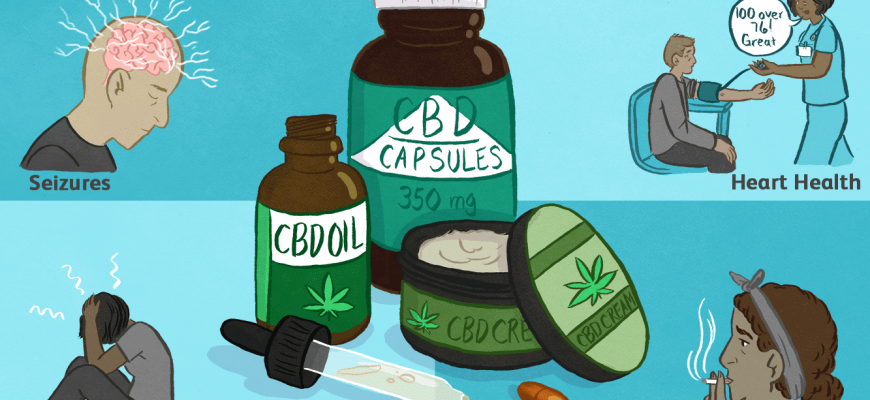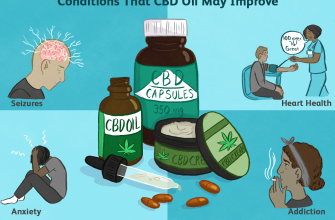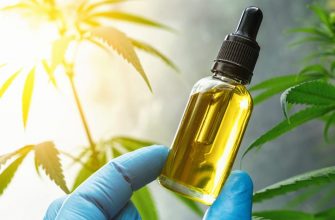CBD explanation and tolerance
CBD has not yet been discussed in detail, but in general we can answer this question with “no”. The use of CBD does not lead to the development of tolerance, but rather the opposite effect. Its use often results in reverse tolerance.
The reason why CBD can cause reverse tolerance is because it increases the amount of natural endocannabinoids. EThis means that over time, users can reduce their dose and achieve the same results. Thus, CBD is the opposite of THC, which in turn reduces cannabinoid receptors over time. This is why THC users are advised to increase their dosage.
This is very remarkable in regards to CBD and the medical aspect (and cost) as patients who use CBD can instead reduce their dose without having to consider increasing the dose.
What to do if you feel that tolerance is developing
Let’s say you’ve been using CBD for seven months and feel like you’re no longer achieving the results you want. Now what?
Of course, you will immediately think about increasing the dose, which will probably work, but we recommend another option.
The estimated time CBD spent in the human body is between 18 and 32 hours, so try not to use CBD for at least two days and then start using it again and try a slightly lower dose.
For more information on how to properly dose CBD, check out our article: CBD – a lot sometimes means a lot.
Conclusion
Further research is needed to confirm the “reverse tolerance” hypothesis, but evidence suggests that CBD users may not fear tolerance. This is truly remarkable, especially given the wide range of CBD healing effects; many of the problems they face are currently being treated with heavy drugs, which in themselves represent tolerance. The lack of tolerance for CBD is another compelling argument for this miraculous cannabinoid.
Price
Original price before discount€69.90
Price: €39.90
3491.25 ₽
1364.98 ₴
Price
Original price before discount€38.90
Price: €24.90
2178.75 ₽
851.83 ₴
Price
Original price before discount€27.90
Price: €22.90
2003.75 ₽
783.41 ₴
- - - - - - - - - - - - - - - - - - - - - - - - - - - - - - - - - - - - - - - - - - - - - - - - - - - - - - - - - - - - - - - - - - -
Research
NEWS FROM AES 2018
NEW ORLEANS - Hemp oil extract with a 20:1 ratio of cannabidiol (CBD) to tetrahydrocannabinol (THC) may reduce seizures in children and adults with treatment-resistant epilepsy, but a quarter of patients developed tolerance, according to a study.
“CBD is a good choice for children and adults with certain types of epilepsy, but as with antiepileptic drugs, it may be less effective over time and dosage may need to be increased to manage seizures,” Shimrit said. Uliel-Siboni, MD, lead author of the study and leader of the Pediatric Epilepsy Service at the Dana-Dwek Children's Hospital at the Tel Aviv Medical Center. Sourasky.
Previous research has shown that the effectiveness of cannabinoids may be reduced when used to treat pain. Efficacy is also reduced in animals with seizures.
To assess cannabinoid tolerance in the treatment of children and adults with epilepsy, researchers in Israel conducted a prospective review of 92 patients with treatment-resistant epilepsy. The patients were aged 1 to 37 years (mean age 11.8 years) and received hemp oil extract from March 1, 2014 to December 1, 2014. The researchers defined tolerance as the need to increase the dose by at least 30% after a decrease in efficacy or a decrease in response to treatment by more than 30%.
Patients had various forms of epilepsy (eg, Dravet syndrome, Lennox-Gastaut syndrome, and stroke-induced epilepsy) and used hemp oil extract for an average of 19.8 months. Of the 84 patients included in the tolerance analysis, 21 patients (25%) developed tolerance after a median of 7.3 months of treatment (range 1-24 months) at a mean dose of 12.6 mg/kg per day. After tolerant patients received an increased dose, 4 patients returned to their earlier levels., and 10 patients had "satisfactory, but below [предыдущего] response rate,” said Dr. Uliel-Sibony and colleagues.
Approximately one third of patients discontinued treatment due to side effects or lack of efficacy. Side effects included drowsiness, nausea, decreased appetite, and vomiting. In addition, convulsions worsened in two patients and psychotic symptoms appeared in one patient; treatment was immediately discontinued in these three patients.
The researchers did not have any information and did not receive any funding for this study.
Retrieved from: https://www.mdedge.com/clinicalneurologynews/article/189969/epilepsy-seizures/patients-epilepsy-may-develop-tolerance-cbd





